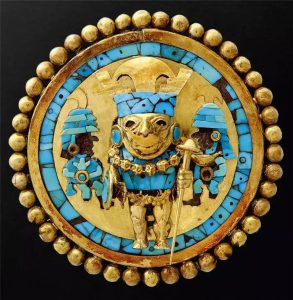“Peppy—time for dinner!” — No reaction.”Mimi—the canned food is ready!” — A lightning-fast sprint.Does this scene seem familiar? Before you start doubting your cat’s intelligence, science has proven that they can indeed recognize their own name! A study by the University of Tokyo conducted an experiment in multi-cat households, playing a series of words, including the names of other cats and similar-sounding words. The results showed that 75% of the cats reacted when they heard their own name, with their ears turning or tails wagging—sometimes even when they couldn’t be bothered to move their bodies!
-
Why Do Cats Sometimes Pretend Not to Hear?
Cats have an impressive hearing range of up to 65,000 Hz, while humans can only hear up to 20,000 Hz—over three times less. They can even pinpoint the sound of you opening a snack bag. So, why might your cat ignore you when you call? It’s likely because you often associate their name with negative experiences, like “bath time” or “nail clipping.” This links their name to something they don’t enjoy.
-
Choose a Good Name, and Your Cat Will Remember It!
Why do all cats in China seem to think their name is “Mimi”? The secret lies in the sound frequency! Cats are particularly sensitive to high-pitched sounds, such as a woman’s voice. The sharp ending sound of “Mimi” or “Kitty” naturally grabs their attention. Plus, “mi” sounds similar to a cat’s purring, making them think, “Is this human trying to talk like me?”
-
Naming Tips to Avoid Mistakes
Don’t use “food” or “canned” as your cat’s name! If you call “Doggies, come eat,” your cat might only respond to “eat,” causing the whole cat family to jump into action. Shorter names work best! Studies show that single or double-syllable names, like “Tang Tang” or “Oli,” have a 3x higher response rate compared to longer names like “Alexander Nicholas.” And never change your cat’s name! Cats associate their name with rewards, so changing it is like making them learn a whole new language.

-
3 Ways to Tame a Distant Cat: Getting Them to Respond on Command!
Method 1: Make the name a “dinner bell.” Hold a piece of freeze-dried food and gently call their name. The moment the cat looks at you, feed them immediately, reinforcing the connection of “name = food!” Bilibili users confirm that after practicing five times a day, cats will start eagerly responding to their names within a week!
Method 2: Avoid “name abuse.” If you yell at your cat using its name, it’ll start avoiding you whenever it hears it. Remember, only associate the name with positive experiences! Call their name softly while petting them, but stay silent during nail trimming, so they start associating their name with affection.
Method 3: Use “codes” in multi-cat households. If you have five cats, try creating specific sounds for each one! For example, a short “da-da” for the first cat and a drawn-out “meow~” for the second. Research shows that cats can differentiate between different tones, so after a while, they’ll start responding with a “hey hey” when they hear their own name!
-
Cats Might Know Your Name!
Studies show that cats not only remember their own name but also recognize the names of other cats and even yours! When a cat hears the owner call another cat’s name, like “Niu Niu, come here,” most cats will turn and look at Niu Niu, indicating they understand who the name refers to. One user joked, “Every time I call my husband ‘dead ghost,’ my cat glares at him… Does she get it?”
A cat’s response is never about “obedience,” but rather a gentle “I’m willing to turn towards you.” It’s like the cat in the essay named “Mimi” who curls up beside you at night, purring and snuggling in the blanket, spending its life responding to the sound of the one who calls its name. What kind of cat do you have at home? What’s its name? When you call it, does it come running immediately, or does it simply “tune you out”? Feel free to leave a comment, share pictures, and exchange tips on cat care in the comment section!





